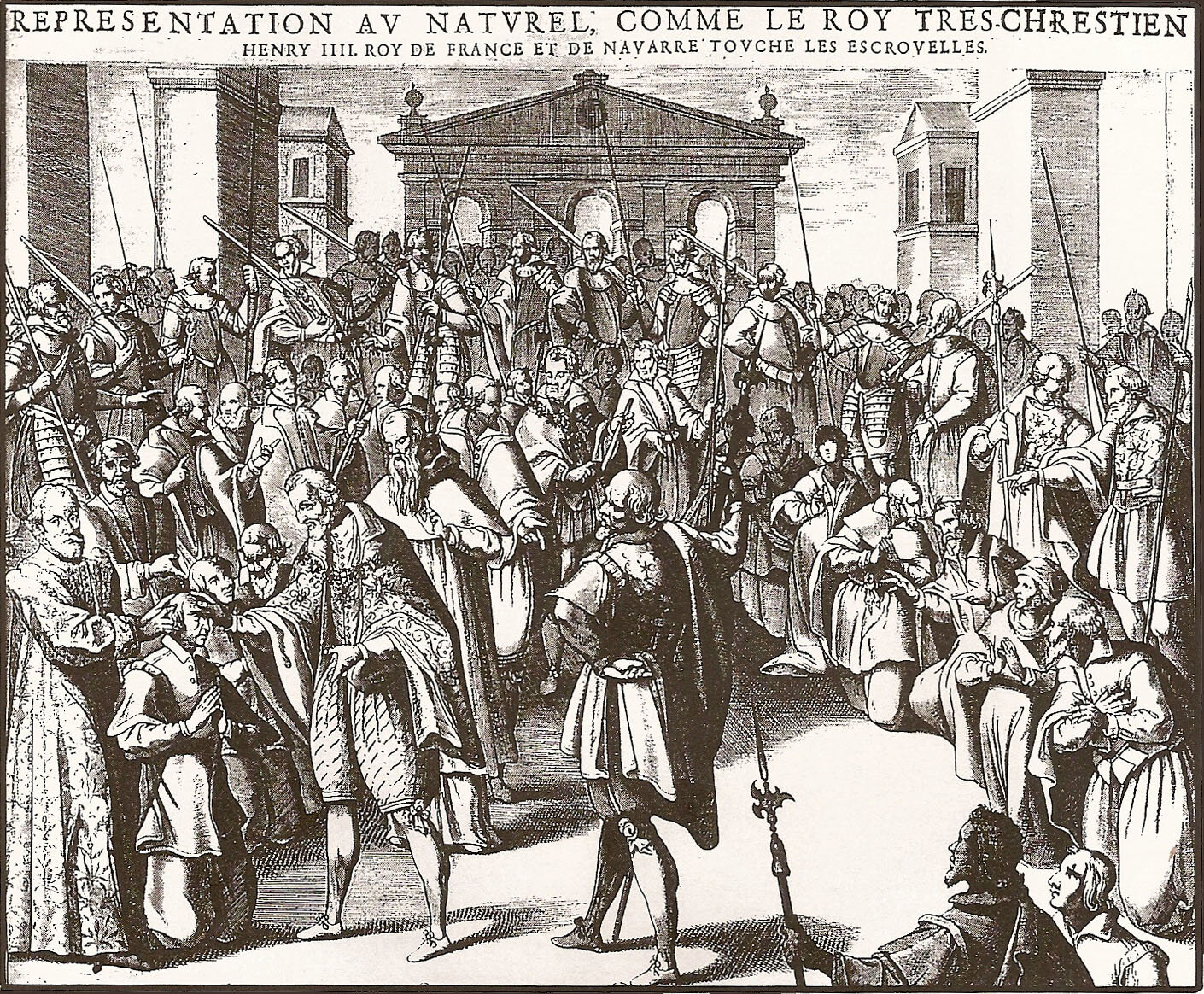Last week, I talked a bit about tuberculosis and its different extrapulmonary manifestations. This leads naturally to another topic which is very relevant to a medieval fantasy setting: the laying on of hands.
In my last piece, I talked a bit about tuberculosis and its different extrapulmonary manifestations. This leads naturally to another topic which is very relevant to a medieval fantasy setting: the laying on of hands. Healing with a touch is more than just a paladin class ability; for most of human history, it was a major part of health care.
The
laying on of hands has always been part of health care, and it's particular relevant to TB because of scrofula. Scrofula, as mentioned last week, is a disorder that appears when TB causes large swellings in the face and neck. In the long ago days when the divine right of kings was something taken for granted, some thousand years ago, someone got the idea that the touch of a king (who was, of course, assumed to be a chosen servant of a god) had magical healing properties. In England and France, the kings (or, according to some sources, the king's designated agents) would walk out into crowds of sick people and just touch everyone. This was a huge event which tended to coincide with major holidays... it wasn't just any old day the peasants got to be anywhere near a king, after all. The "royal touch" was believed to be among the most effective medicines of the era, although it must be noted that the wise women and herbalists of the time are largely forgotten simply because they didn't pay people to write down their exploits. According to records from about the year 1000 CE right up until the fall of the French monarchy, people really did become less sick thanks to the royal touch, or any number of analogous healing rituals.
So why do the sick and injured actually seem to get better when a special person touches them? The answer depends on who you ask. The scientific evidence for
reiki and
other forms of faith healing is pretty limited and mostly discouraging, but it's possible that they have some genuine effect which scientists simply haven't yet adequately documented. The general consensus among the scientific community is that faith healing works primarily by the
placebo effect and, in particular, thanks to that most therapeutic of all interventions, empathic human contact. Don't mistake the word "placebo" as meaning fake or ineffective; if you give someone a placebo painkiller and it makes their pain go away, then it's an effective treatment. The placebo effect is probably one of modern medicine's most powerful tools, and we're only beginning to understand how we can best make use of it... something which the kings of France in the twelfth century probably understood better than your family physician.
In a fantasy world, assuming you don't have a hundred gold to spend for an actual healing spell, the entirely non-magical laying on of hands just might be the best (and only) treatment available to commoners. Presumably, some healers in your campaign setting have worked hard to perfect that art, and it's hard to know which ones really think they have healing powers and which ones know better.
Faith Healer [General]
People around you believe that your touch can cure sickness, and they believe it so strongly that to a degree it becomes true.
Prerequisite: Charisma 16 or local mythology justifying your ability to heal the sick.
Benefit: When you touch an individual suffering from an active disease, if the individual believes that your touch will heal them, it stops their disease from progressing for 1d8-1 days. The number of days increases by 1 if your touch is accompanied by any form of ritual or other pomp and circumstance lasting at least five rounds. You may only "cure" a particular creature in this way once per 1d12 months, but there is no limit to the number of creatures you may cure per day.
More than four years ago, Dr. Eris Lis, M.D., began writing a series of brilliant and informative posts on RPGs through the eyes of a medical professional, and this is the one that appeared here on November 24, 2013. Lis is a physician, gamer, and author of the Skirmisher Publishing LLC OGL sourcebook Insults & Injuries, which is also available for the Pathfinder RPG system.









